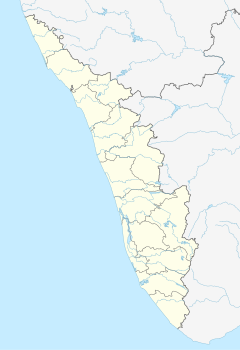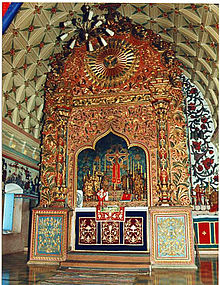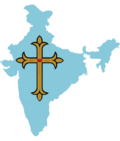| Saint Thomas Jacobite Syrian church, North Paravur | |
|---|---|
 Saint Thomas Jacobite Syrian church, North Paravur | |
| Religion | |
| Affiliation | Jacobite Syrian Orthodox Church |
| District | Ernakulam |
| Province | Kerala |
| Festival | Memorial feast of Gregorios Abdul Jaleel [1] |
| Ecclesiastical or organizational status | Cathedral |
| Year consecrated | 1566 by Mar Joseph Metropolitan [2] [1] [3] |
| Location | |
| Location | |
| Geographic coordinates | 10°09′03″N76°13′22″E / 10.1508082°N 76.2228599°E |
| Architecture | |
| Type | Church |
| Style | Kerala Architecture |
| Founder | Paravur Tharakans [1] |
| Date established | 29 November 1566 [3] |
| Completed | 1566 |
| Direction of façade | West |
Saint Thomas Jacobite Syrian church, also known as Paravur Cheriyapally, is a Syrian Orthodox church located in North Paravur, India. [1] [2] This church was constructed in AD 1566 in the midst of the seven bazaars of Paravur town by the parishioners of the ancient Kottakkavu Paravur Valiapally. The church houses the tomb of famous Syrian Orthodox prelate Gregorios Abdul Jaleel and has staged consecrations of various prelates of the Jacobite Syrian Church since then. [1]





